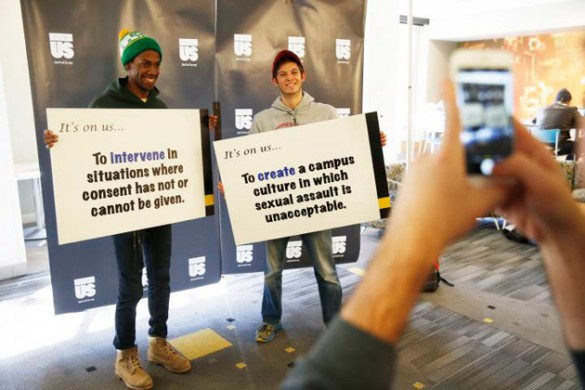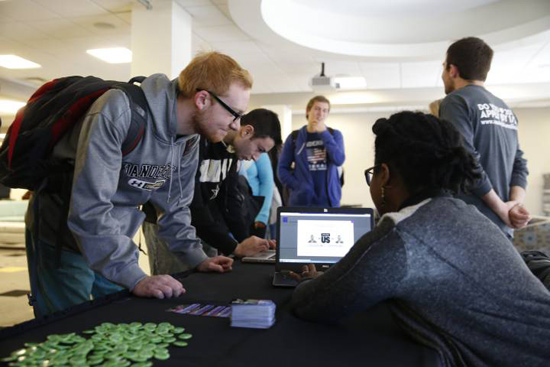
About 300 Vanderbilt students turned out to pledge “It’s On Us” to end power-based personal violence on campus. The pledge signing event at Rand Hall was a joint effort of Vanderbilt Student Government, the Project Safe Center for Sexual Misconduct Prevention and Response, and the Office of the Dean of Students.
The pledge is part of the national “It’s On Us” initiative, an awareness campaign to help put an end to sexual assault on college campuses. President Barack Obama and Vice President Joe Biden launched the initiative in September citing statistics that an estimated one in five women has been sexually assaulted during her college years; that of those assaults, only 12 percent are reported; and of those reported assaults, only a small number of the offenders are punished. The campaign calls on everyone to make a personal commitment to step off the sidelines and be part of the solution to campus sexual assault.

The pledge signing event on Nov. 20 is one of a number of student-driven initiatives to combat power-based personal violence at Vanderbilt. VSG has produced a video addressing the issue, established a task force on sexual assault, and is planning a town hall meeting for students in early December.
The students’ efforts are in addition to steps the university has taken to address sexual misconduct on campus, which include opening the new Project Safe Center this summer and the expansion of programs to educate new and current students about intervention strategies and safety measures to make campus safer. In addition, the university has publicized information about informed consent and produced an online module that is a series of videos created to educate students about the types of power-based personal violence as well as the relevant laws, policies, warning signs and campus resources available.
The university also continues to evaluate and, as appropriate, enhance the physical security of campus.